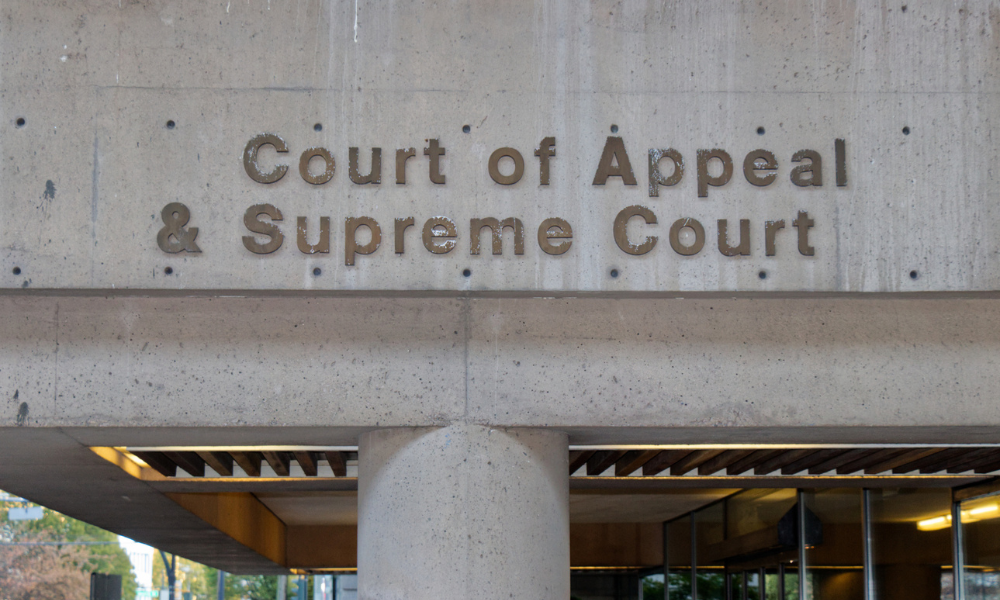Case arose from the alleged negligence of doctors and nurses at Royal Columbian Hospital

The BC Court of Appeal has compelled a plaintiff to post security for costs in favour of the attending physicians but not the hospital operator in an appeal of a medical negligence case.
In Focken v. Fraser Health Authority, 2023 BCCA 81, Teisha Focken brought a lawsuit against the attending physicians and the Fraser Health Authority (FHA) after her husband, Bradley Focken, died from bleeding in his neck while in a hospital operated by FHA. She claimed that the physicians breached the standard of care and that the nurses failed to monitor him appropriately. The attending physicians determined that Bradley required embolization but concluded that the procedure could wait until the following morning.
Teisha and her daughter testified that they observed Bradley suctioning blood from his mouth throughout the night without any medical professionals noticing. However, none of the medical staff noticed any bleeding, and there was no indication of bleeding in the hospital records. The defendant doctors' expert witnesses testified that the medical treatment provided was reasonable and met the expected standard of care.
The trial lasted ten days, and both sides presented expert witnesses to support their claims. The trial judge found that Bradley was stable in the hospital and had no active bleeding until 3 a.m. on the procedure day. The judge also concluded that the doctors exercised reasonable clinical judgment in scheduling the procedure in the morning, and the standard of care was not breached.
Security for costs
Teisha Focken appealed the order dismissing the medical negligence action. The FHA and the doctors filed applications seeking security for the costs of the appeal and the trial and an order to stay the appeal until security is posted. The court deemed that Teisha is "impecunious" and has no exigible assets. The doctors and FHA could not recover any costs from her should the appeal fail.
The BC Court of Appeal explained that the primary criteria for security of costs are the appellant's ability to post security, the likelihood of costs being awarded, the appeal's merits, and the application's timeliness. The court emphasized that respondent doctors and NHA must show that it is in the interests of justice to order posting for the security of a trial judgment and costs. The court further said that due consideration must be given to the merits of the appeal, the effect of a security for costs order on the ability of the appellant to continue the appeal, and the prejudice caused to either party by granting or dismissing the application.
The court also pointed out that even if the appeal seems to be meritorious, a security order might prevent an appellant without means from pursuing it. The merits threshold is low and only requires the appellant to demonstrate that the appeal "has some possibility of success," is not "virtually hopeless," "appears to have some merit," or is not "bound to fail."
Merits of appeal
The court accepted that Teisha has no means and no exigible assets. The court concluded that there was no merit to the appeal concerning the FHA, but it could not reach the same conclusion concerning the doctors.
The court explained that the cornerstone of the claim against the FHA was that the nurses failed to monitor Bradley Focken properly. In particular, they failed to notice he was bleeding before 3 a.m. The trial judge found, as a fact, that there had been no active bleeding before 3 a.m. Teisha Focken did not challenge this finding. The appeal court concluded that there was no basis on which an appellate court could find the FHA breached the expected standard of care.
As to the doctors, Teisha claimed they failed to inform Bradley and his family of the risks of delaying the embolization until the morning. She asserted that if he and her husband had been informed of the risks, they could have taken steps to have the procedure done sooner.
The doctors argued that Bradley Focken was sufficiently informed of the risks he faced. Even if he had not been sufficiently informed, it would not make a difference because the doctors exercised reasonable clinical judgment in scheduling the embolization.
The court said that while the likelihood of the appeal might not be high, it is "not virtually hopeless." Accordingly, the doctors' application was dismissed.










